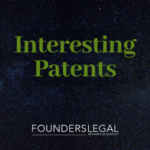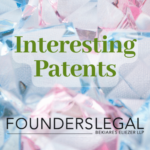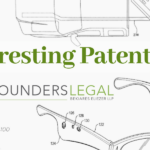I usually get asked the question: If I rush to convert my provisional to a non-provisional patent filing, does that reduce the risk of someone having a third party receiving a patent on the same subject matter?
Typically, there is NO rush in filing the non-provisional utility patent application once you’ve already secured a provisional patent application. Whether you file the non-provisional patent application the next day or 11 months and 20 days from the priority date established by the provisional, your patent priority rights will be the same.
In fact, the long your wait, the longer your effective patent coverage may actually be. Consider that a utility patent grants the inventory rights to exclude others from making, using, and selling the patent invention for a period of 20 years after the non-provisional patent filing date. So, if you have a priority date 1 year prior to the non-provisional filing date, that creates an effective patent priority of 21 years.
But there’s a catch to waiting – Warning: The longer you wait to convert your provisional patent application to a non-provisional, the greater the potential of someone obtaining a patent on the same subject matter as you – even if you have an early patent priority date established by your provisional patent filing.
Here is why: consider that a provisional patent application is never disclosed to the public. It’s kept confidential by the USPTO, and not even patent examiners assess provisional patent applications when they examine non-provisional utility patent applications.
This means that, while you are ‘patent pending’ with a patent priority date secured by a provisional patent filing, another applicant may apply for a non-provisional patent. In some instances, the patent examiner may begin examining their patent application while your provisional patent is still pending under confidentiality. This means that your provisional patent application may not be used as prior art against the subsequent patent filer. In turn, the subsequent patent filer may be granted a patent, even though you had an earlier filed provisional!
Correcting this is an up-hill battle and the subject of a different article.
If you are interested in more detail related to your situation it is best to speak with an attorney.
Yuri Eliezer heads the intellectual property practice group at Founders Legal. As an entrepreneur who saw the importance of early-stage patent protection, Yuri founded SmartUp®. Clients he has served include Microsoft, Cisco, Cox, AT&T, General Electric, the Georgia Institute of Technology, and Coca-Cola.



